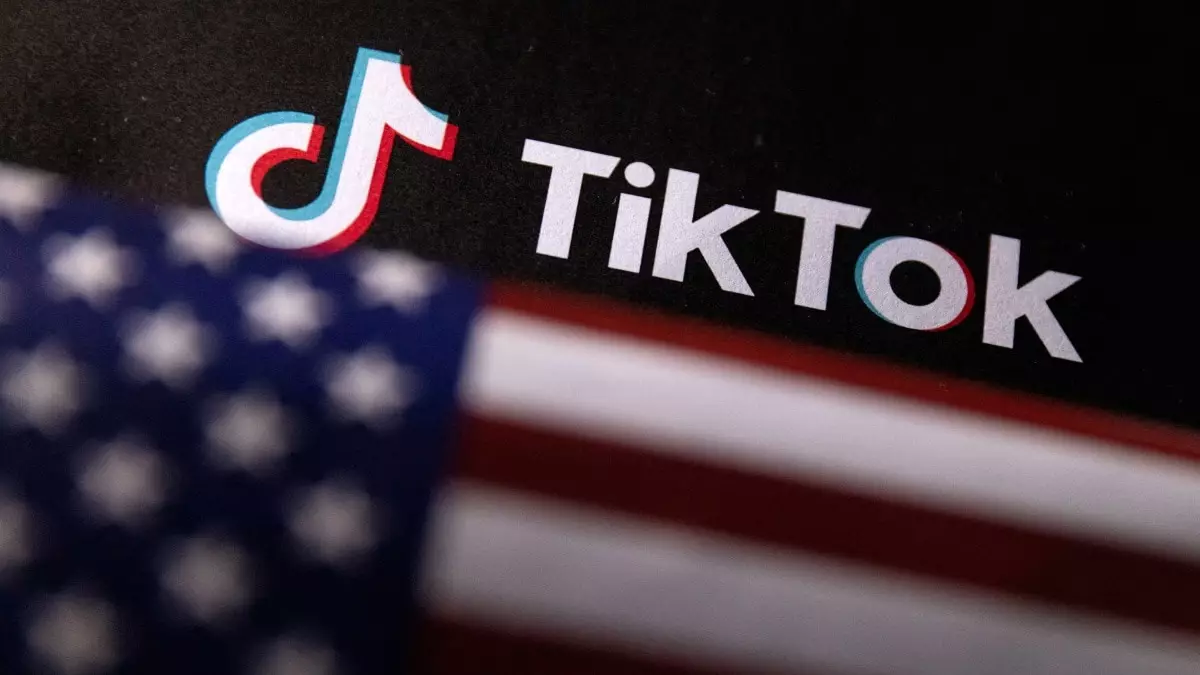The ongoing legal battle surrounding TikTok in the United States represents a complex intersection of politics, technology, and national security. As President-elect Donald Trump aims to steer the conversation towards a potential resolution after taking office, the implications for TikTok and its millions of users in the U.S. are profound. The upcoming Supreme Court hearing on January 10 is poised to shape the future of the popular social media platform, highlighting the changing tides of political influences and regulatory scrutiny.
The Supreme Court’s consideration of President-elect Trump’s request to delay enforcement of the ban on TikTok stems from a congressional law that mandates the Chinese parent company, ByteDance, to divest from the app by January 19. Should the Court side with this request, it may provide the incoming administration space to explore avenues of negotiation rather than confrontation. Indeed, the law passed in April emphasizes the growing urgency among U.S. lawmakers regarding data privacy and national security. With over 170 million users in the U.S., the stakes for TikTok are exceptionally high, potentially affecting the livelihoods of numerous content creators reliant on the platform.
The magnitude of this case cannot be overstated. If the Supreme Court does not grant the stay and ByteDance fails to divest by the imposed deadline, TikTok could face an operational ban just a day before Trump’s inauguration. This uncertainty raises significant questions not only about the future of the app but also the broader implications for digital platforms owned by foreign entities operating within U.S. borders.
Remarkably, Trump’s current stance on TikTok marks a significant shift from his administration’s 2020 position, which sought to either block the app or force its sale due to fears associated with its Chinese ownership. This transformation reveals an adaptable political strategy, as Trump has publicly expressed a “warm spot” for TikTok and a willingness to allow it to continue operations. The president-elect’s subsequent engagement with TikTok’s CEO, Shou Zi Chew, indicates a calculated effort to build an amicable relationship with the app, potentially to harness its extensive user engagement, which has proven beneficial during his campaigning efforts.
Trump’s legal representation has notably emphasized that he does not necessarily support the underlying premise behind the TikTok legislation; rather, the focus is on providing his administration with a fair opportunity to seek a resolution. This political maneuvering illustrates the broader context of how digital platforms can affect electoral politics and leadership dynamics.
The debate surrounding TikTok is equally polarized among national security advocates and free speech proponents. Proponents of the ban argue that the app’s Chinese ownership presents significant risks regarding data security and espionage. The Justice Department has articulated a strong stance on these threats, gaining support from many legislators who view TikTok’s operations as jeopardizing U.S. national interests.
Conversely, free speech advocates criticize the proposed ban as a form of censorship reminiscent of authoritarian regimes. They warn that banning a platform like TikTok could set a dangerous precedent regarding internet freedom and the rights of users to access various forms of content. This dichotomy underlines the delicate balance the Supreme Court must consider, weighing national security against constitutional principles of free expression.
As the Supreme Court prepares to hear arguments regarding TikTok, the decision will likely influence regulatory approaches toward foreign technology companies operating in the U.S. The outcomes may extend beyond TikTok, setting critical precedents for how the U.S. engages with global tech firms. As President Trump and his administration strategize for a political resolution, the future of TikTok and its operations in the U.S. underscores the intricate relationship between technology, governance, and user engagement in an increasingly digital world.
In a landscape fraught with tension between geopolitical concerns and the interests of millions of everyday users, the next steps taken by the Court and the incoming administration will not only dictate TikTok’s fate but may also redefine the operational boundaries of foreign technology in America. As this situation unfolds, the ramifications for users, creators, and the broader tech landscape will continue to emerge, shaping how society interacts with digital platforms in unforeseen ways.


Leave a Reply